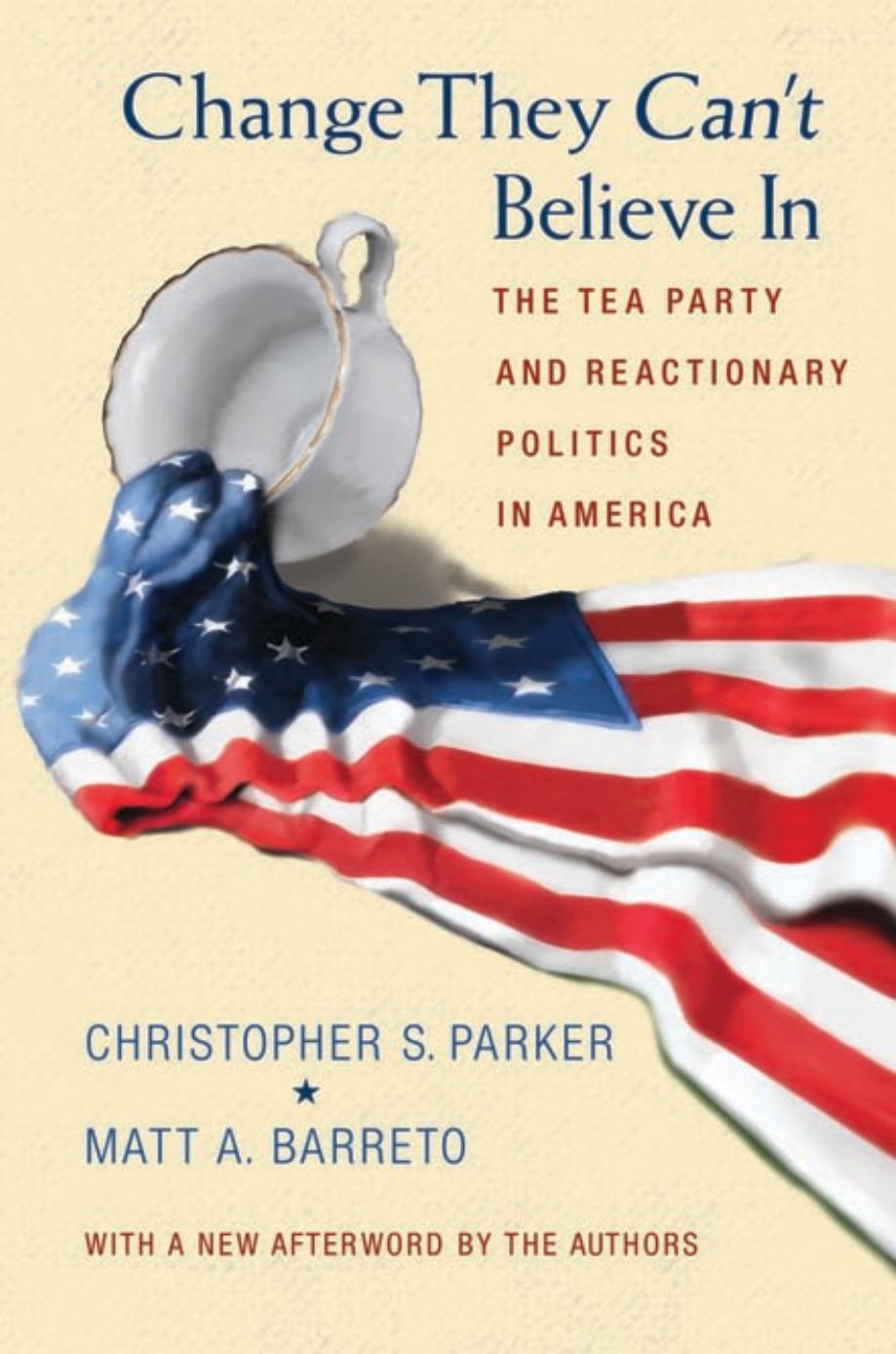Change They Can't Believe In by Parker Christopher S. Barreto Matt A

Author:Parker, Christopher S., Barreto, Matt A.
Language: eng
Format: epub, pdf
Publisher: Princeton University Press
Published: 2013-03-21T16:00:00+00:00
4.3. Attitudes toward sexual minorities, by degree of Tea Party support
Note: Total N = 1188, with 308 true believers, 488 middle of the road, and 392 true skeptics; relationships significant at χ2 p < 0.000
So far, the distance separating believers and skeptics is significant, never getting any smaller than 25 percentage points. Based on what we’ve heard from Tea Party supporters in our interviews, this is no shock. We expected as much. Critics, however, can charge that the differences can be attributed to conservatism; that believers are simply more conservative than anyone else. This is relevant because conservatives, as we have already outlined in prior chapters, are about traditionalism, among other things. Traditionalism rejects “alternative lifestyles,” including homosexuality. This is a valid objection.
To remedy this, we continue with our practice of limiting our analysis to self-identified conservatives as we attempt to pry Tea Party conservatives away from other conservatives. If our claim that Tea Party conservatives are in fact reactionary is true, we should see differences emerge between them and non–Tea Party conservatives. This is precisely what happens as is evident by our results in figure 4.4. It’s worth noting that the Tea Party conservatives and non–Tea Party conservatives remain in lockstep on the issue of whether or not sexual minorities should keep their lifestyle to themselves. Still, on every other question, we see a familiar pattern take shape in that Tea Party conservatives are less tolerant than their non–Tea Party brethren.
So far, from what we’ve witnessed, people who believe in the Tea Party tend to harbor some degree of hostility toward immigrants—legal and otherwise, and members of the gay and lesbian community, more so than other Americans, and more so than mainstream conservatives. Returning to chapter 1, we think it has something to do with their perception that the country is slipping away from them, giving rise to what we believe is reactionary conservatism. However, we can’t say this for sure until we account for other possible explanations for out-group hostility.
It could be the case, for instance, that Tea Partiers’ commitment to conservative principles is the real reason why we see the differences we observed. Another explanation is that Tea Party sympathizers favor people like themselves more than they dislike out-groups. For the negative attitudes we observed regarding gay rights, it might simply be a matter of a perceived violation of a moral code, or that evangelicals think homosexuality is a sin. In any case, we won’t have confidence in our preliminary findings, that attachment to the Tea Party has something to say about intergroup attitudes, and the willingness (or lack thereof) of Americans to extend more equal treatment to out-groups, until we rule out competing explanations and account for these other factors in our analysis. We now turn to that task.
Download
Change They Can't Believe In by Parker Christopher S. Barreto Matt A.pdf
This site does not store any files on its server. We only index and link to content provided by other sites. Please contact the content providers to delete copyright contents if any and email us, we'll remove relevant links or contents immediately.
| Anarchism | Communism & Socialism |
| Conservatism & Liberalism | Democracy |
| Fascism | Libertarianism |
| Nationalism | Radicalism |
| Utopian |
The Secret History by Donna Tartt(19046)
The Social Justice Warrior Handbook by Lisa De Pasquale(12185)
Thirteen Reasons Why by Jay Asher(8889)
This Is How You Lose Her by Junot Diaz(6875)
Weapons of Math Destruction by Cathy O'Neil(6264)
Zero to One by Peter Thiel(5786)
Beartown by Fredrik Backman(5737)
The Myth of the Strong Leader by Archie Brown(5496)
The Fire Next Time by James Baldwin(5429)
How Democracies Die by Steven Levitsky & Daniel Ziblatt(5212)
Promise Me, Dad by Joe Biden(5141)
Stone's Rules by Roger Stone(5080)
A Higher Loyalty: Truth, Lies, and Leadership by James Comey(4950)
100 Deadly Skills by Clint Emerson(4919)
Rise and Kill First by Ronen Bergman(4777)
Secrecy World by Jake Bernstein(4740)
The David Icke Guide to the Global Conspiracy (and how to end it) by David Icke(4699)
The Farm by Tom Rob Smith(4502)
The Doomsday Machine by Daniel Ellsberg(4484)
